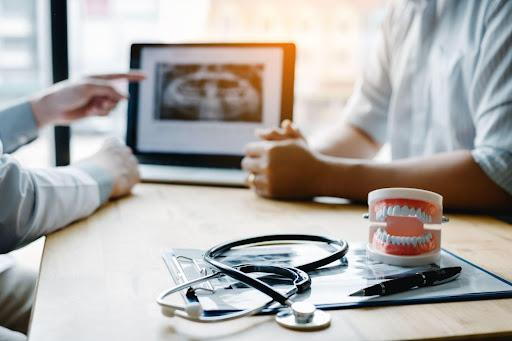
Dental technology is constantly changing and improving to better suit the needs of patients around the world. A relatively new yet life-changing procedure in dentistry is implant/bone grafting. A bone graft adds volume and density to your jaw in places where bone loss has occurred. During the surgery process, oral surgeons transplant a small amount of bone to increase the width or height of bone. Once your body is healing, the graft unify with your bone and the site will be ready for implant later.
A variety of materials can be used in bone grafting procedures. An autograft is a bone graft that comes from your own body. The surgeon carefully transplants bone growth from somewhere else on your upper or lower jawbone to the target area. An allograft is a bone graft that comes from donor cadaver bone that has been cleaned and stored in a tissue bank. Some bone grafts aren’t even human bone at all. Instead, they're made from animal bone (xenograft) or synthetic bone (alloplast). Whichever method your oral surgeon uses, there are several reasons why you may need bone grafting. Just a few of these reasons include:
Dental Implants
When people discuss bone grafting, it's often mentioned hand in hand with dental implants. This is because, in order to benefit from dental implant surgery, you need solid and healthy bone matter. Chewing places a lot of stress on your jawbone, and implants need the best chance to work to replace your teeth! If you don’t have good quality bone, you might not be able to have dental implant surgery without first undergoing bone grafting.
Gum Disease
Some people undergo bone grafting due to serious cases of gum disease. Gum disease, called periodontal disease by dental health professionals, can reduce bone mass in the jaw because bacteria from gum disease can cause bone loss.
Tooth Loss
Losing a tooth or two might seem like a minor problem compared to your entire jawbone needing a bone graft, but tooth loss actually causes bone loss. When an adult tooth is lost, 25% of bone width is reduced over the course of just the first year. Continuing to ignore this problem can lead to increasingly severe bone loss, which cannot be reversed. However, even though it cannot be reversed, it can be improved significantly by a bone graft. Bone grafting can help restore the damaged parts of the jawbone and stop the process of bone loss that is initiated by tooth loss.
Misaligned Teeth
Severely misaligned teeth that have not been corrected for many years can have similar consequences to tooth loss. If your adult teeth have not grown in properly or your wisdom teeth are impacted, your dentist or oral surgeon might first recommend surgical procedures to deal with these problems. However, you might also be a candidate for a bone graft as your jaw’s health can suffer as problems continue due to shifting irregular teeth.
Dental Trauma
Dental trauma comes in many forms. While dental trauma definitely includes being struck in the mouth with an object or colliding face-first into a solid surface, it can also be slower-onset over months or even years. For instance, chronic teeth grinding can do long-term damage to your tooth health. Regardless of how your teeth end up damaged, all of these kinds of dental trauma can mean you lose jawbone mass and might end up needing bone grafting to promote better bone health and heal wounded areas.
Do you have questions about bone grafting or want to discuss your options with a reliable, professional, and top-rated dental team? Do you have dental concerns such as tooth pain when biting down? Wondering what type of dental filling is right for you? Get in touch with Bloom Dental of Arlington and get the answers to all of your questions, as well as compassionate and experienced care for all of your dental needs!
